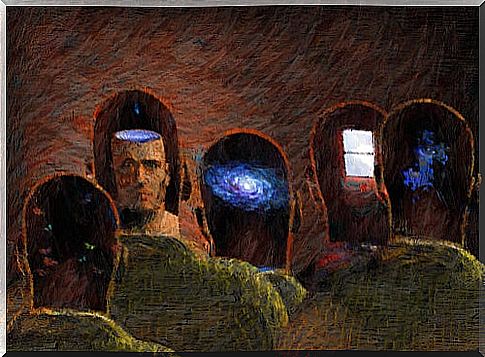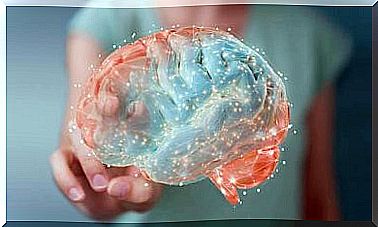Frieda Fromm-Reichmann And Psychoanalytic Orientation Therapy

Frieda Fromm-Reichmann was a rather peculiar psychiatrist at the time, as she managed to find a way other than physical repression or chemical drugs to treat patients who were under the label of ‘mentally ill’. In addition, she was one of the great disseminators of psychoanalytic ideas in the United States.
It has been considered a revolutionary in the history of the treatment of schizophrenia. Part of his fame is due to the fact that he treated and cured the famous Joanne Greenberg, a woman whose case seemed impossible to treat and had already been classified as ‘insane’. Therapy with Frieda Fromm-Reichmann not only brought her back to sanity, but also to become an important novelist.
His main work was Principles of Intensive Psychotherapy , published in 1950. For many, Frieda Fromm-Reichmann should have a more relevant place in the history of psychoanalysis, as she is one of the most prolific and prominent Neo-Freudian women.

Frieda Fromm-Reichmann, a brilliant girl
Frieda Fromm-Reichmann was born on October 23, 1889 in Germany. He came from a middle-class family, of Jewish religion and very conservative. She was the oldest of several siblings, all of them boys; For this reason, her father granted her certain privileges that were not common for a woman at that time.
One of them was the support for him to study medicine at the Königsberg School of Medicine, where he graduated when he was only 19 years old. By the time he turned 22, he already had a doctorate in neurology and psychiatry. He loved his craft and proved it by dedicating himself to it passionately throughout his life.
His first job was with soldiers who had suffered brain injuries during the First World War. His first articles date from this stage, all of them with a marked scientific accent. At the end of this work, his perspective and his work took a turn.
The practice of psychoanalysis
Frieda Fromm-Reichmann stopped being interested in the organic field of her profession and embarked on a new path. JH Schultz provided him with some essays on Freudian psychoanalysis, immediately capturing his attention. In particular, he was interested in the subject of the therapeutic relationship, transference and countertransference.
A very particular patient came to his office, named Erich Fromm, with whom he had already met in some psychoanalytic circles. The brilliant patient later became her husband and had a stormy relationship with him that lasted until the day of his death. She kept her married name, even after her divorce.
Due to his Jewish origin, he had to emigrate from Germany when the rise of Nazism began. She was in several countries and, finally, she settled with her husband in the United States. After the end of the war, he set out to spread psychoanalytic theory in his new place of residence.
A special patient
Frieda Fromm-Reichmann began working at the private clinic at Chesnut Lodge (Rockville, Maryland), where she practiced for more than 22 years. Also there he developed his intensive psychotherapy, which he applied as a fundamental element in the treatment of schizophrenia.
In that same place, he treated Joanne Greenberg, a teenager who was permanently confined. In his mind, there were eight characters that he hallucinated with and with whom he had built a common language that no one else spoke. Joanne was kind of a ‘basket case’.
As the therapeutic process progressed, Frieda Fromm-Reichmann made a pact with her patient. Each of them would elaborate the memories of the process, from their own perspective. In the end, the two would publish a book with both versions.

I never promised you a rose garden
Joanne Greenberg’s cure was surprising. However, Frieda Fromm-Reichmann died on April 28, 1957, at the age of 67 without seeing her work with Greenberg finished. He had a heart attack that doctors attributed to his uncontrollable addiction to smoking and his habit of drinking liquor. Unfortunately, the project with his patient was cut short.
For Greenberg, this loss was devastating, but he was determined to keep his promise. Recalling what she had learned in therapy, her work I never promised you a rose garden was gestated , in which she narrates the extraordinary path from madness to reason, a journey that she made with the guidance of Frieda Fromm-Reichmann and without going to medication.
Frieda Fromm-Reichmann’s therapeutic proposal was to empathize with her patients and achieve a respectful understanding of the root of their symptoms. He noted that just establishing that deep and loving relationship produced significant changes in his patients. Despite this, at present, his work has been relegated to the background, surely, due to the rise of advances in pharmacology that barely leave room for Frieda Fromm-Reichmann’s proposal.









